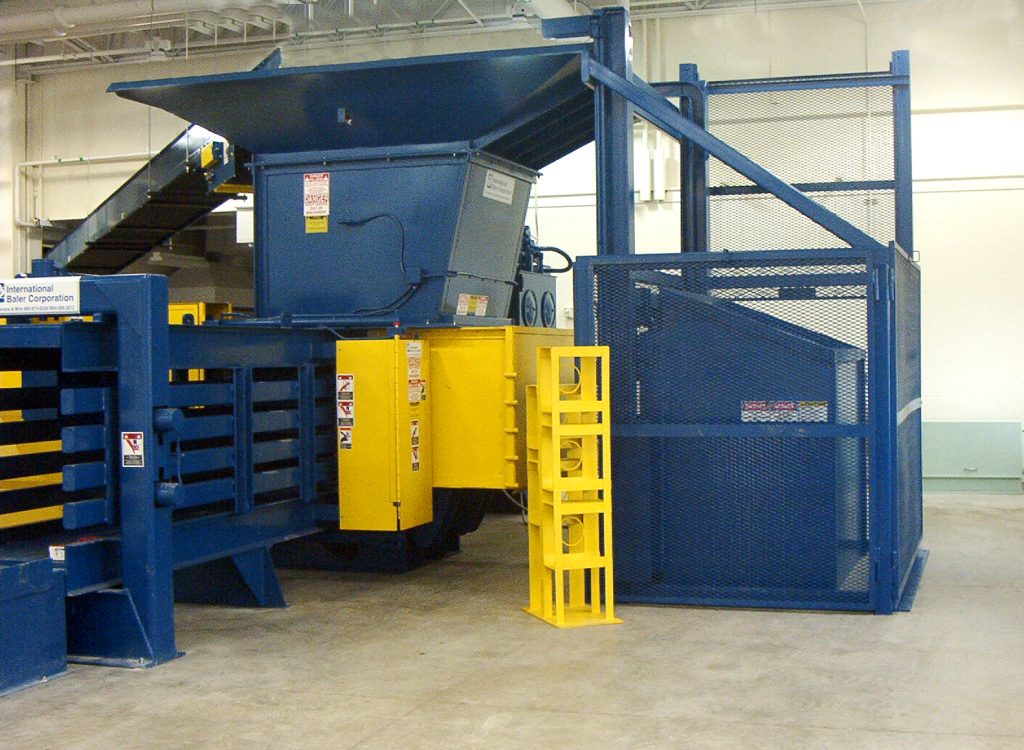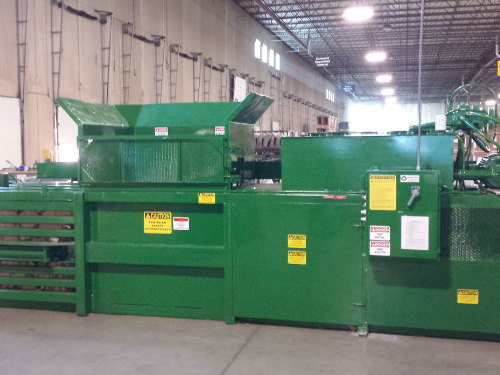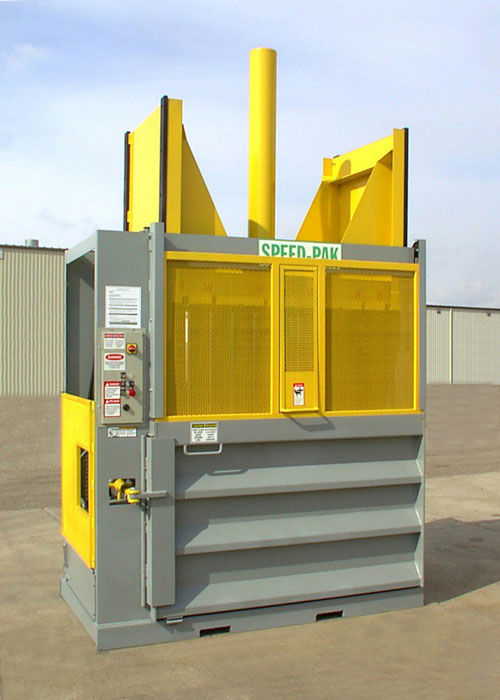Maximizing Cost Savings with Cardboard Balers: Tips for Efficient Recycling Operations
Recycling is a crucial aspect of waste management that not only benefits the environment but also offers significant cost savings for businesses. In today’s world, it has become more vital than ever for companies to implement efficient recycling operations to reduce their environmental footprint and lower waste disposal expenses.
One essential tool that plays a key role in achieving efficient recycling operations is the baler. Balers are indispensable in compressing recyclable materials like cardboard, plastics, and aluminum cans into compact bundles, allowing for easy storage and transportation.
In this blog, our primary objective is to provide valuable tips and insights to businesses on how to make the most of balers for their recycling needs, optimizing cost savings, and enhancing overall sustainability efforts. With the right baler usage, businesses can streamline their recycling processes and pave the way towards a greener and more cost-effective future.

The Role of Balers in Recycling
Balers play a critical role in recycling operations. Balers are designed to compress a wide range of recyclable materials like cardboard, plastics, and aluminum cans into tightly packed bundles, making them easier to handle and transport.
They work by using hydraulic or mechanical pressure to compact these materials, effectively reducing their size and creating neat, uniform bales. The versatility of balers allows businesses to efficiently process various recyclables, contributing to efficient recycling operations. One of the major advantages of using balers is the significant reduction in storage space required for recyclable materials. By compacting them into dense bundles, businesses can optimize their storage capacity and minimize clutter.
Moreover, balers also contribute to cost savings by reducing transportation expenses, as compact bales take up less space during transit. Embracing balers as part of your recycling strategy is a smart move to achieve efficient recycling operations and promote sustainability.
Evaluating Recycling Needs and Volumes
For businesses aiming to streamline their recycling efforts, it’s essential to regularly assess their recycling needs and the volume of waste they generate. Conducting waste audits is a valuable practice to gain insights into the types and quantities of recyclable materials being discarded. By understanding these recycling needs, companies can make informed decisions when selecting the appropriate baler size and capacity.
An ideal baler should be tailored to handle specific materials and quantities, ensuring efficient recycling operations. Taking the time to evaluate recycling needs can significantly contribute to cost savings and overall sustainability goals, making it a vital step in optimizing recycling processes. With the right baler, businesses can efficiently manage recyclable materials, enhance their environmental impact, and contribute to a greener future through efficient recycling operations.
Choosing the Right Baler for Your Business
When it comes to recycling balers, businesses have several options to choose from, including vertical balers and horizontal balers. Each type of baler offers distinct advantages, and understanding their differences is essential in making the right choice for efficient recycling operations. Factors like business size and waste volumes play a crucial role in selecting the most suitable baler.
Smaller businesses may find vertical balers more suitable for their recycling needs, while larger operations may benefit from the high-capacity capabilities of horizontal balers or the automation provided by auto-tie balers. Making an informed decision requires expert advice, and seeking guidance from recycling equipment experts or manufacturers can be immensely helpful. These specialists can provide valuable insights and recommend the best baler solution to optimize recycling processes and achieve efficient recycling operations.
Check out our Vertical and Horizontal Balers!

Balers' Impact on Waste Management Costs
When it comes to achieving efficient recycling operations, balers are true game-changers. One of the significant ways they contribute to cost savings is by reducing waste hauling frequency and the associated fees. By compressing recyclable materials into compact bales, businesses can transport larger quantities in a single trip, minimizing the number of hauls required.
This not only cuts down on transportation costs but also reduces carbon emissions, making it an eco-friendly choice. Additionally, balers offer the potential for revenue generation by selling the compacted recyclable materials to recycling centers. Businesses can turn their waste into valuable commodities, creating an additional income stream while promoting sustainability. Real-life examples and case studies further underscore the impact of balers in saving costs and boosting efficiency. Companies across various industries have reported significant savings in waste disposal expenses, making balers a smart investment for any business committed to optimizing recycling operations and achieving efficient recycling practices.
Implementing Best Practices for Baler Efficiency
Operating balers efficiently is vital for businesses aiming to achieve efficient recycling operations. To ensure smooth and effective baling processes, employees should be well-informed about practical tips.
Proper loading techniques, such as evenly distributing materials and avoiding overloading, can maximize baler capacity and reduce the risk of jamming.
Regular maintenance practices, including keeping the equipment clean and checking for wear and tear, are essential to keep balers running smoothly and prolong their lifespan.
Another crucial aspect is bale density, as denser bales result in optimal bale weight for transportation efficiency. By compacting materials more tightly, businesses can transport larger quantities, reducing transportation costs.
Safety is paramount when operating balers, and providing thorough training to employees is essential. They should be educated on safe handling procedures and equipped with personal protective equipment to avoid accidents and minimize downtime.
Following these practical tips ensures that businesses get the most out of their recycling balers, contributing to overall efficient recycling operations.

Collaborating With Recycling Partners
In the pursuit of efficient recycling operations, forming partnerships with recycling centers or waste management companies is a strategic move for businesses. Collaborating with these entities brings a range of benefits, including the potential to negotiate better pricing for recyclable materials. By working together, businesses can leverage their collective recycling volumes to secure competitive rates, maximizing their revenue from selling compacted recyclables.
Moreover, transparent communication is key in fostering successful partnerships. Clear and open dialogue ensures that both parties understand each other’s needs and objectives, paving the way for long-term and sustainable recycling solutions. Building strong relationships with recycling partners fosters a sense of shared responsibility for environmental stewardship, making a positive impact on the community and the planet as a whole. Embracing collaboration and open communication is a surefire way for businesses to excel in their recycling efforts and achieve truly efficient recycling operations.
Efficient Recycling Operations: Conclusion
In the pursuit of efficient recycling operations, forming partnerships with recycling centers or waste management companies is a strategic move for businesses. Collaborating with these entities brings a range of benefits, including the potential to negotiate better pricing for recyclable materials. By working together, businesses can leverage their collective recycling volumes to secure competitive rates, maximizing their revenue from selling compacted recyclables.
Moreover, transparent communication is key in fostering successful partnerships. Clear and open dialogue ensures that both parties understand each other’s needs and objectives, paving the way for long-term and sustainable recycling solutions. Building strong relationships with recycling partners fosters a sense of shared responsibility for environmental stewardship, making a positive impact on the community and the planet as a whole. Embracing collaboration and open communication is a surefire way for businesses to excel in their recycling efforts and achieve truly efficient recycling operations.
